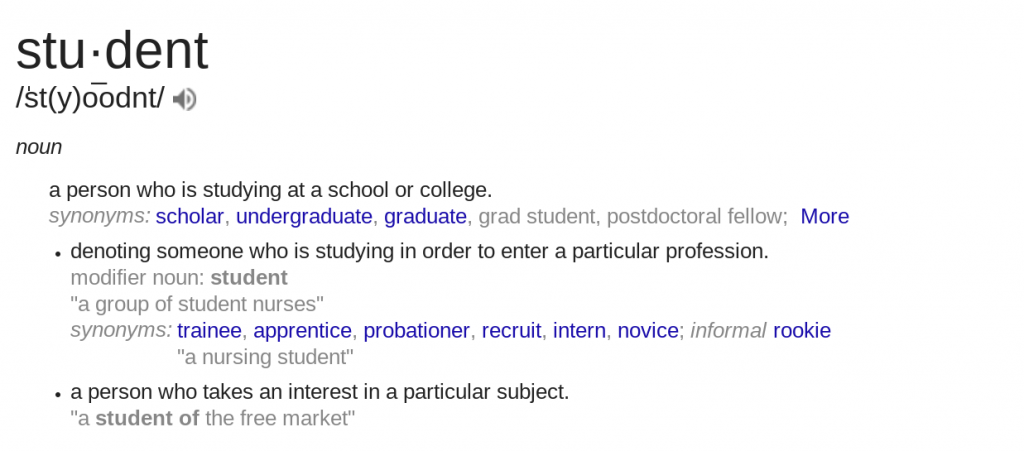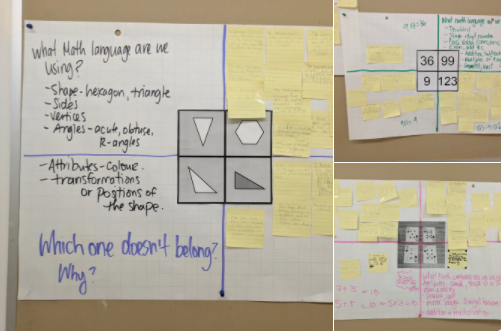I’ve always been a lover of Math. Even when I wasn’t particularly strong in a specific area, I always loved the thought of calling myself a Mathematician. Now I know it’s a huge leap from loving the subject to ascribing to being a Mathematician but hear me out for a minute. As many of my friends may know, I love Google so I thought I would ask my good friend for the definition and here’s what I found.
 Magically, this definition empowered me to realize that I too can be a Mathematician simply by being a student of Mathematics. It didn’t say that I always have to excel in all areas. It simply says that I have to be a student. Now for the definition of student. Ok Google….
Magically, this definition empowered me to realize that I too can be a Mathematician simply by being a student of Mathematics. It didn’t say that I always have to excel in all areas. It simply says that I have to be a student. Now for the definition of student. Ok Google….
 I’m going to go with the last definition. A person who takes an interest in a particular subject. So after much searching, I think it’s safe to embrace the term. The question is, how do I get my students to do the same?
I’m going to go with the last definition. A person who takes an interest in a particular subject. So after much searching, I think it’s safe to embrace the term. The question is, how do I get my students to do the same?
Inevitably, when I ask my students to tell me about their Math experiences, there are many who already describe themselves as being “not good at Math” or state, “it’s too hard”. My task then is to reframe their experiences with Math, encouraging them to change their outlook.
At the beginning of the year, I’m always looking for new ways to engage my students in Math tasks as my assessment for learning. For the last couple of weeks, we have been doing Which One Doesn’t Belong activities and I have been asking my students to use Mathematical language to justify their answers. After a few rounds, one of my students started laughing and said, “there’s really no wrong answer so long as you explain what you are thinking”. It was interesting because it didn’t occur to many of them that there may be multiple possibilities to answering these types of questions.
This got me thinking and asking myself:
- Is this what holds our students back from realizing that sometimes engaging in Math isn’t just about getting the right answer but exploring different pathways to finding solutions?
- Is Math about allowing students to explore the different concepts and seeing where these concepts intersect or are useful in everyday life?
- Can we reframe Math for our students so that they realize that so long as they take an interest in it and persist as students, they too can be Mathematicians and that it is not only about “being good at it”?
- On Friday we were coding in Scratch and words like values, angles, turns, length were coming out. Isn’t that Math? Can we explicitly teach the concepts and empower them to create using them?
Ms. Lambert, the self-proclaimed Mathematician, is on a mission this year to work with students to empower them to embrace Math just a little more. I’ll keep you posted on our journey!

